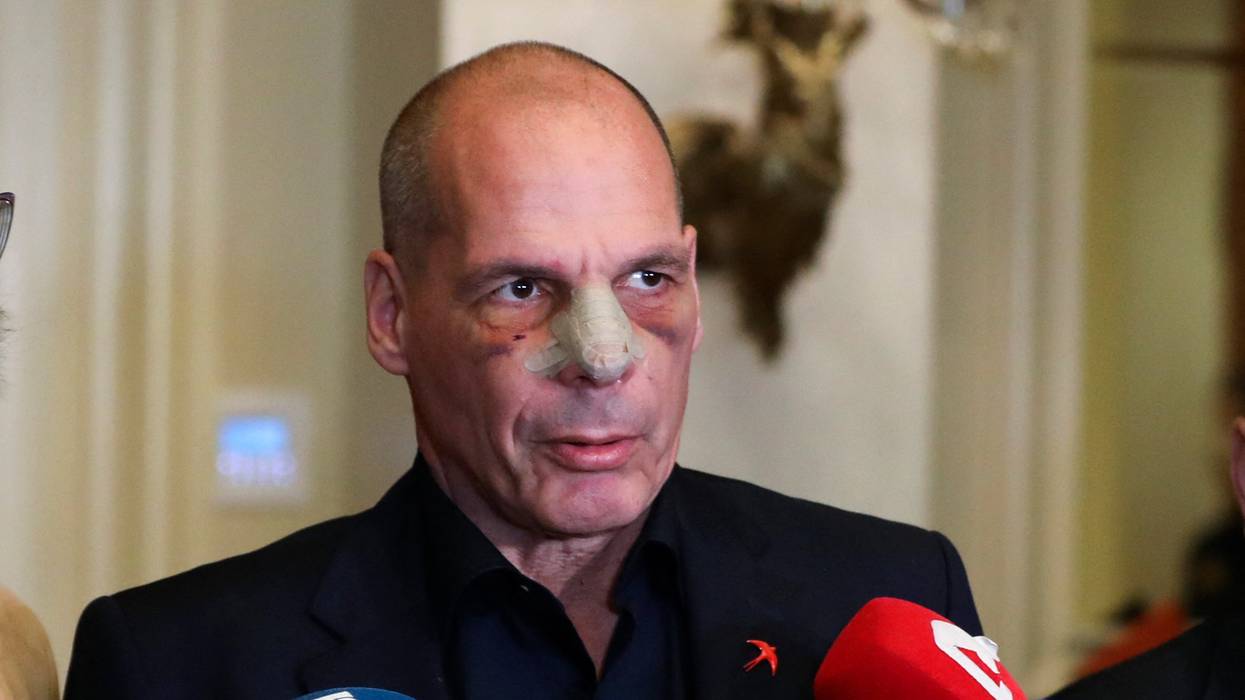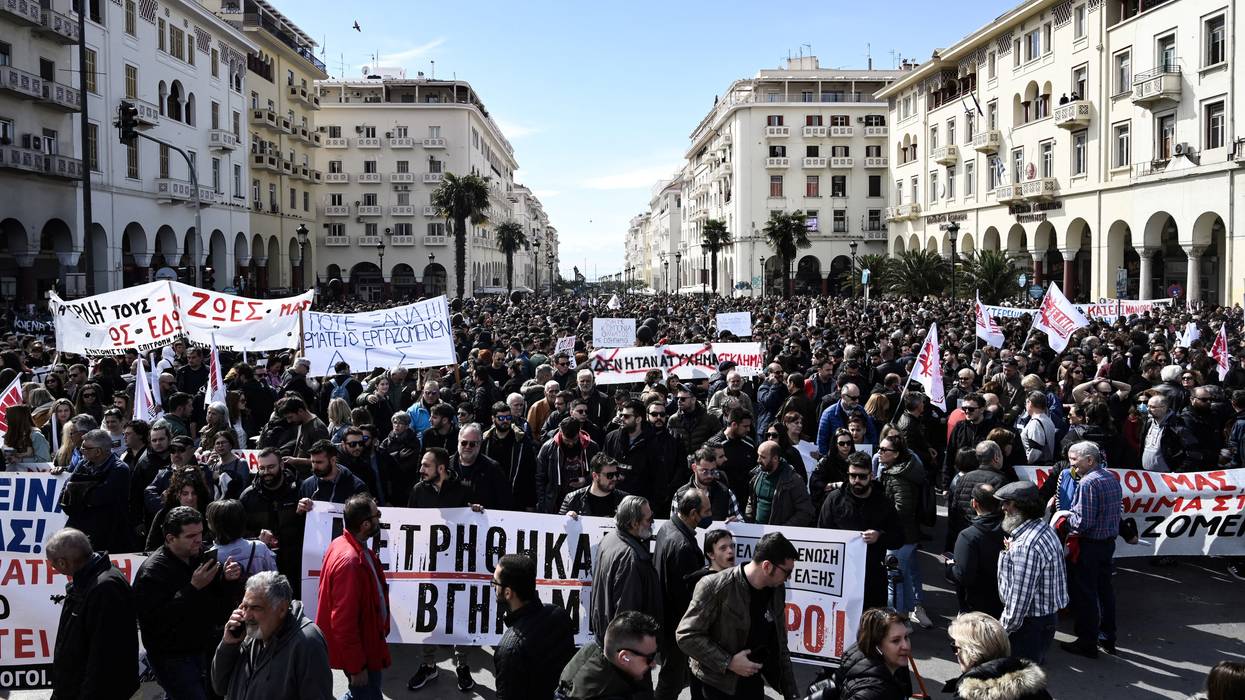After Brutal Assault, Yanis Varoufakis Urges Progressives to Focus on 'What Really Matters'
"I will recover," the Greek leftist said. "But those 57 from the train accident in Tempi won't, and their families' pain cannot be treated."
Recovering from a brutal assault that left him with a broken nose and cheekbone, leftist Greek lawmaker Yanis Varoufakis on Tuesday urged progressives "not to get distracted" from the railway accident that killed 57 people last month or the neoliberal "privatize everything doctrine" he blames for the disaster.
Appearing on ANT1's "Kallimera Ellada" (Good Morning, Greece) on Tuesday, Varoufakis—the parliamentary leader of the left-wing MeRA25 party and former finance minister—told hosts Giorgos Papadakis and Maria Anastasopoulou he needs to "thank the public hospital staff" because "they worked miracles" to treat his fractured cheekbone and nose, which was broken in six places during the Friday evening assault by a group of young men the lawmaker described earlier as "hired thugs."
"The oligarchic establishment is trying to exploit my injuries in the most hideous, Goebbels-like manner."
"I will recover," he said, brushing off more questions about the attack. "But those 57 from the train accident in Tempi won't, and their families' pain cannot be treated," a reference to the February 28 collision of passenger and freight trains in Larissa.
Many observers have linked the disaster to austerity measures imposed upon Greece from abroad, especially by the so-called "Troika" of the European Commission, European Central Bank, and International Monetary Fund. These institutions are widely reviled due to the suffering their policies forced upon Greece and other economically ailing European Union members after the 2007-08 global financial meltdown.
In a Tuesday letter thanking supporters for "showering" him with "solidarity" following the attack, Varoufakis called for focusing on "what really matters."
"The Greek railway tragedy, that claimed 57 lives, has triggered a remarkable youth movement which is undermining the hegemony of the neoliberal 'privatize everything' doctrine," he wrote.
"The oligarchic establishment is trying to exploit my injuries in the most hideous, Goebbels-like manner," Varoufakis continued, referring to the Nazi propaganda chief. "They are insinuating that I, an anti-systemic politician, [have] fallen victim to the anti-systemic mood that politicians like me have inspired in our youth."
"We must not let them succeed in sullying a pristine, spontaneous, peaceful, progressive youth movement," he added.
Ekathimerini reported Tuesday that two people have been arrested in connection with that attack—a 19-year-old described by Greek Citizen Protection Minister Takis Theodorikakos as an "anarchist," and a 17-year-old who allegedly recorded the assault on his phone.
Varoufakis was attacked Friday evening outside a restaurant in the Athens neighborhood of Exarchia. According to the Democracy in Europe Movement 2025 (DiEM25)—which Varoufakis co-founded—the leftist lawmaker was at the restaurant with members of the movement from around Europe.
"A small group of thugs stormed the place shouting aggressively, falsely accusing him of signing off on Greece's bailouts with the Troika," DiEM 25 said in a statement. "Varoufakis stood up to talk to them but they immediately responded with violence, savagely beating him while filming the scene."
During his appearance on "Kallimera Ellada," Varoufakis said that after he left the eatery, one of his assailants was "pushing me and hitting me and I said to him, 'I'm trying to respect you, to listen to what you want, and you're hitting me?'"
When asked why he did not have a police or security escort, Varoufakis said police make him feel "imprisoned" but that "things will probably change now, due to my wife's demand... 'From now on, you will have police officers.'"

